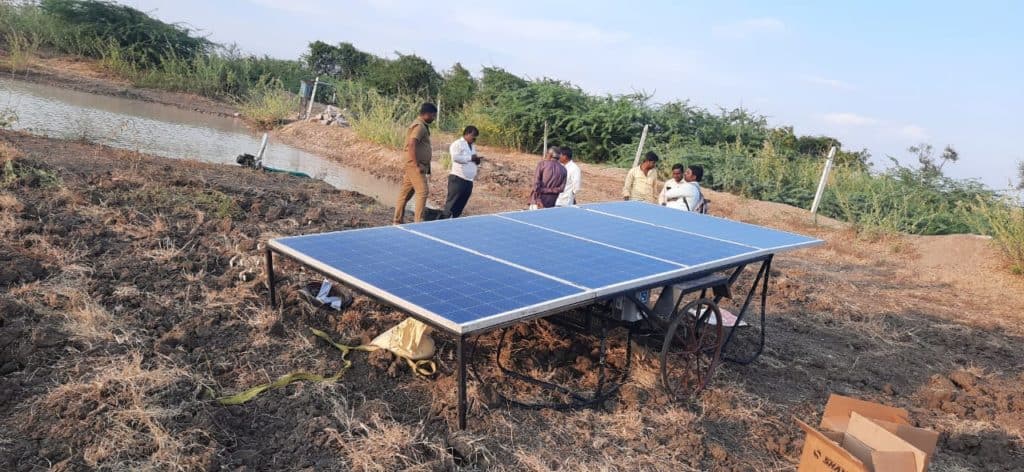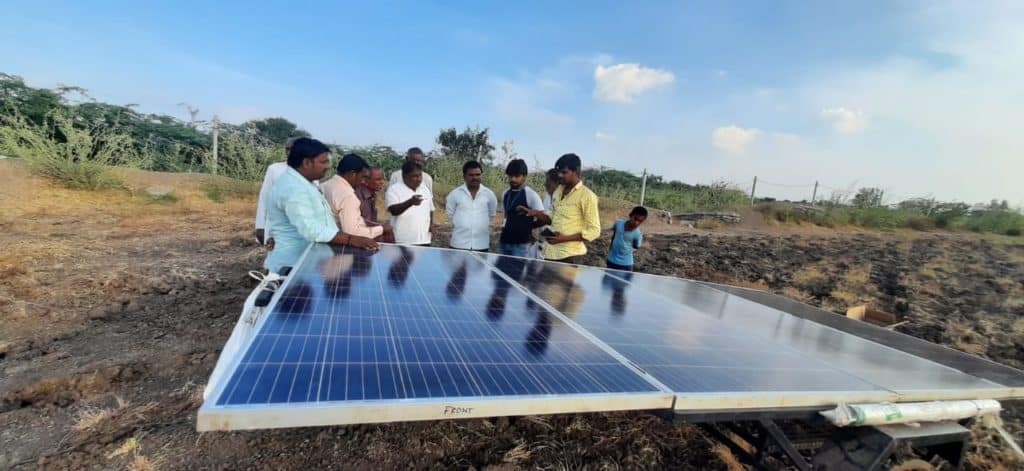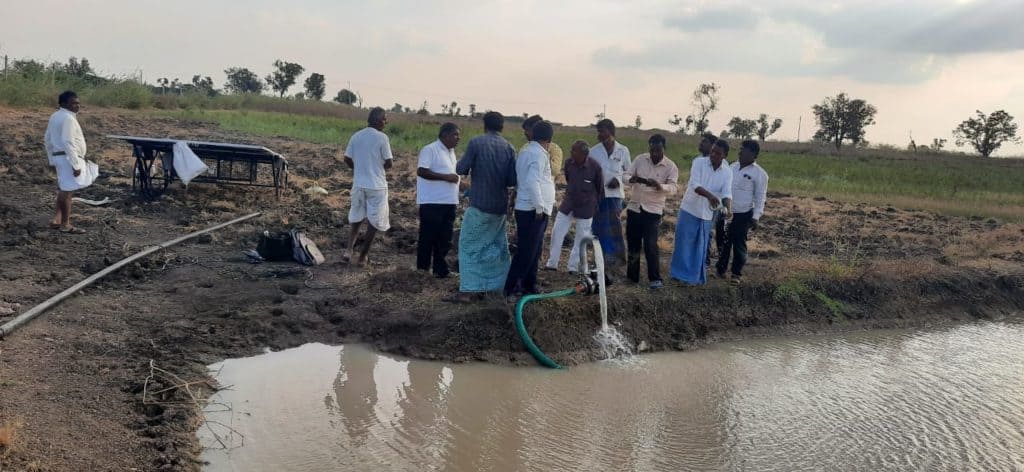At this time (2024) we are actively involved with a number of major donors – see our projects below.
Save Indian Farmers
Their support has been ongoing since 8 years. Save Indian Farmers – fund us in a variety of areas for bore well recharge projects bringing a sustainable supply of water to needy farmers. They have also helped with supplying food to families who were affected badly by the COVID lockdowns.

Currently working on bore well recharge projects in Tamil Nadu, Telangana, Anantapur, and Chittradurga Districts.
SBI Foundation Gram Seva
In March 2020 we commenced working with SBI Foundation on the Gram Seva Project.

Gram Seva Project
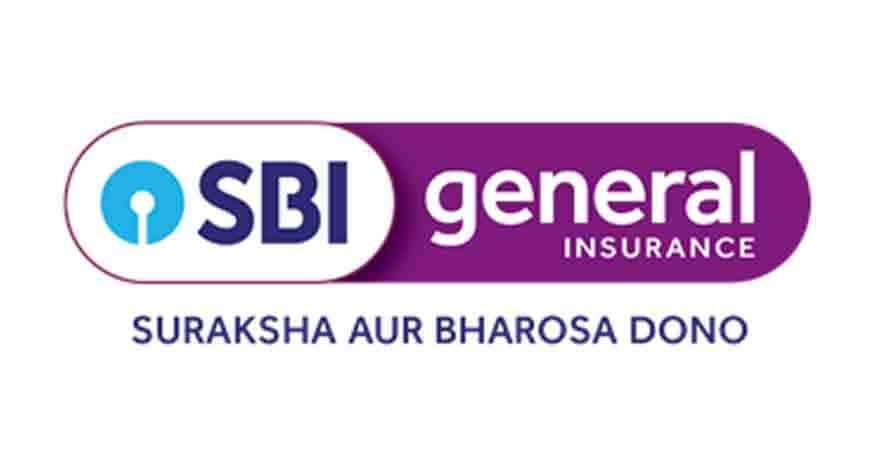
Gram Seva Project
This project has an integrated rural development approach. It is now completed being a three year project, and is in the overseeing and handover stage. “SBI Foundation believes in social development with a focus on education, health, environment and economic objectives of society. It has set objectives like digitisation of villages and promotion of quality education for rural students. Also improvement of primary health services, accessibility to safe drinking water and sanitation, promotion of sustainable livelihood practices and improving farmers’ income. There is improvement in coverage of benefits and schemes of the government, capacity-building for participatory rural development and many more,”.
Partnered with SRDS, the project was of three years duration and is centred on Petalur, Harogeri, Tambaragundi, Basapur and Kelur villages.
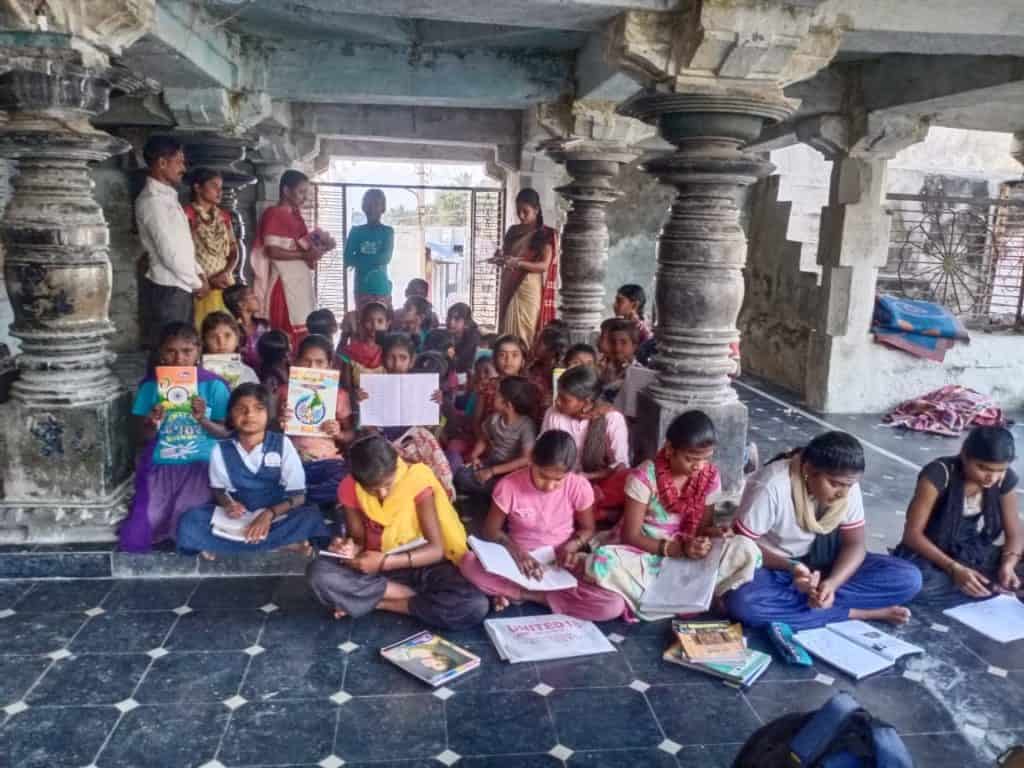
There are a wide variety of initiatives happening in these villages including provision of an ambulance and mobile health clinic – computer digital lab, outdoor exercise exercise equipment, tree based farming support, fish farming, and our always important work – that of water – both bore well recharge, farm ponds and a check dam.
Gram Saksham Project
In 2023 the SBI Foundation supported SRDS to purchas an excavator. This excavator since has been actively fully employed in carrying out rain water harvesting projects in the Gadag District. Farm ponds for small needy farmers who cannot afford commercial rates for utilising excavator, as well as bund creation. Since the outset 10 village lakes have also been rejuvenated- with the dug out silt being given to local farmers to spread on their fields and thereby enrich their land.
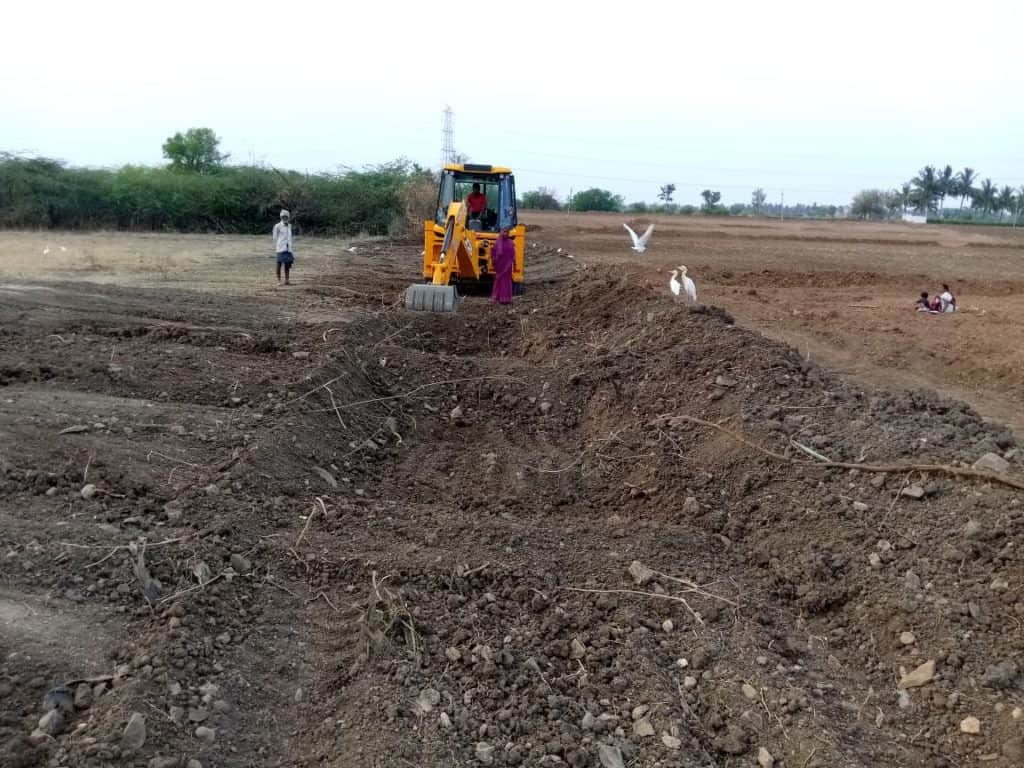
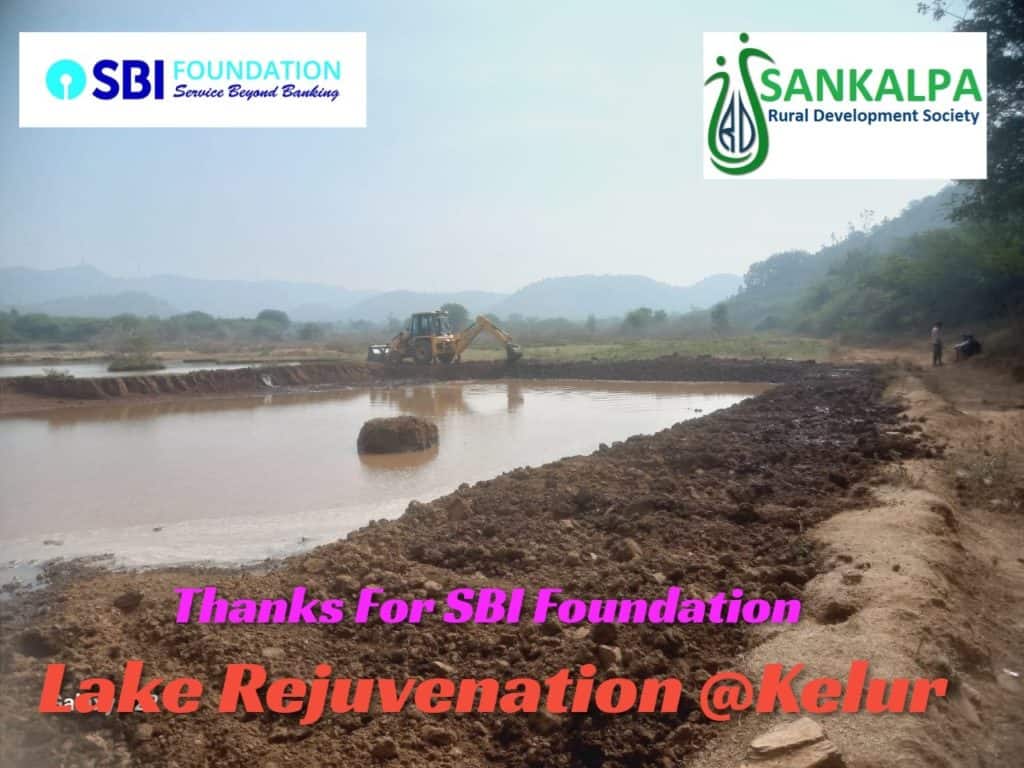
Past Project from 2020.
Sustain Plus
Since late in 2019 we began a big project centred in the Yalaburga Taluk, Koppal District – over 4 Panchayats .. and supported by Sustain Plus.
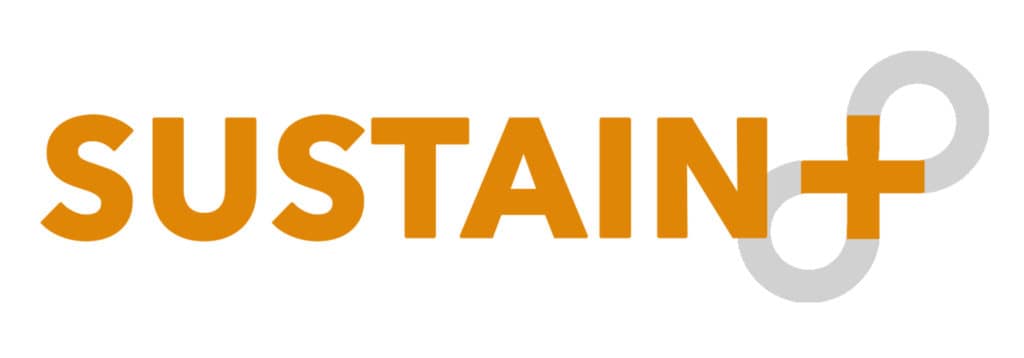
Sustainable Water Recharge and Storage Techniques – Area Development and Farmer Capacity Building
This is an ongoing project – focused on area development – utilising rain water harvesting, both bore well recharge as well as farm ponds. And solar installations particularly mobile solar for the farmers who have poor access to electricity. A key area of this project is also the creation of Farmer Producer Organisations to support access to facilities that individual farmers cannot manage.
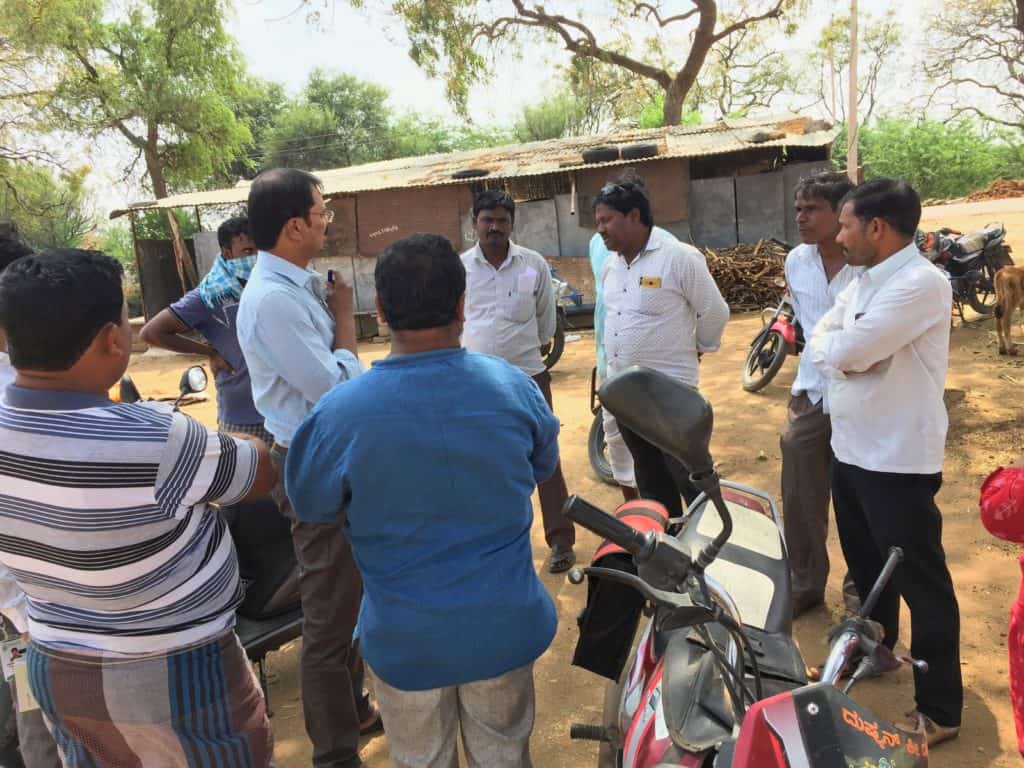
Rationale for Selection of this Area
- In Koppal District the Yelburga Taluk is the only Government declared backward area.
- There is a mix of black and red soil – irrigation by both ponds and bore wells
- There are many dried up bore wells and need for more ponds.
- High migration of farmers to Goa and Mangalore for work
- Many people in the area are suffering poverty
- Power supply for irrigation is erratic and in many black soil areas does not exist.
- Agriculture limited by only rain fed crops.
- The Taluk is in easy working range of our Gadag office and SRDS has an existing good network in the area with both farmers and the Panchyat.
A key element in the work with Sustain Plus is Portable Solar Pumps. These are being rolled out to be utilised by 4 or more farmers – and are proving to be a useful and economical method of providing power for farmers who are either not on the power grid or who’s access to power is very limited.
